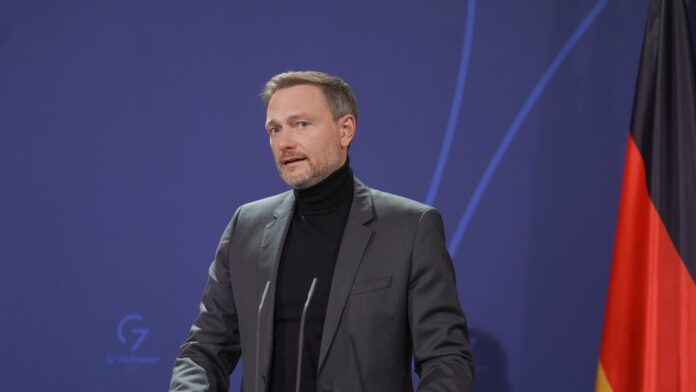BRUSSELS — Germany said Europe should refrain from borrowing more money to compete with U.S. green subsidies or its competitiveness will be threatened.
The EU has been vocal about its concerns over the U.S. Inflation Reduction Act (IRA), saying its subsidies to North American car manufacturers breach international trade rules and threaten European businesses. European Commission President Ursula von der Leyen said Sunday “new and additional funding at the EU level” will be needed to make European companies more competitive in the transition to a greener economy.
But over in Berlin, her idea was received with some skepticism.
“The Inflation Reduction Act of the U.S. is the opportunity, the invitation, to reconsider our competitiveness,” German Finance Minister Christian Lindner told CNBC Monday.
“There are some parts of Ursula von der Leyen initiative which [need] to be further debated, especially her proposal of [a] European sovereignty fund. If that means kind of rebranding of existing tools, I’m open for discussion. If sovereignty funds mean new common European debt, then I think this would not be an improvement of our competitiveness or stability, it would be a threat for competitiveness and stability,” he said.
The ideas suggested by the head of Europe’s executive arm are still at an initial stage, meaning there are no formal proposals on the table. However, they indicate where the commission believes the bloc should go to be in a better position to compete with the United States.
The IRA — approved by U.S. lawmakers in August — includes a record $369 billion in spending on climate and energy policies. The landmark package comprises tax credits for electric cars made in North America and supports U.S. battery supply chains.
“We have all heard the stories of producers that are considering to relocate future investment from Europe to the U.S.,” von der Leyen said Sunday.
What other European ministers are saying
Swedish battery maker Northvolt is, according to the Financial Times, considering expanding its production stateside and benefiting from some of the subsidies. Another report last month suggested the company may delay a decision to build a new plant in Germany.
Speaking to CNBC Monday, Dutch Finance Minister Sigrid Kaag also said she prefers “to take stock of what’s already out there [in terms of funding for greener initiatives] and either we repurpose or we refocus.”
Likewise, Ireland’s Finance Minister Paschal Donohoe said: “It goes without saying that it is a lose-lose, if we were all using the taxpayers money in different parts of the world to compete with each other.”
U.S. and EU officials have held several talks on how to adapt some of the rules within the IRA to take into consideration some of the concerns raised in Europe. One of those meetings took place in Maryland on Monday.
“We also took stock of the work of the dedicated U.S.-EU Task Force on the Inflation Reduction Act and noted the preliminary progress made. We acknowledge the EU’s concerns and underline our commitment to address them constructively,” a joint statement said following the meeting.
Last week, U.S. President Joe Biden said that tweaks could be made “to make it easier for European countries to participate” in the subsidies provided by the IRA.


